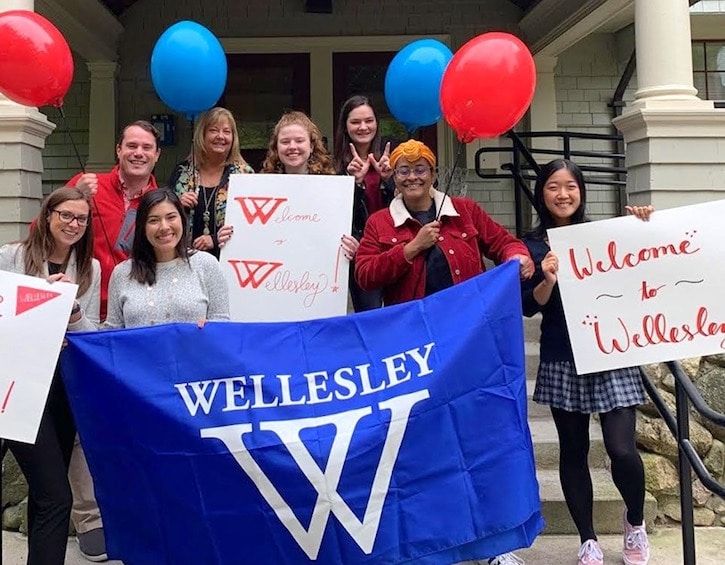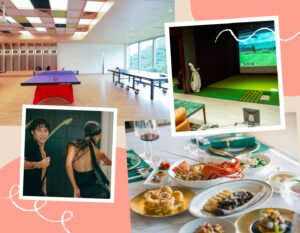

Why not encourage our kids to adopt this approach to business and life, starting with their university applications?
One reason why we may not often do this is that we are prepared to take risks for ourselves but not for our children, especially if we feel that it might jeopardise their future. On the other hand, adopting a conservative approach might only guarantee mediocrity, or worse, boredom. Thinking outside the box can mean many things in terms of higher education – it can apply to courses of study, choice of institution or the very need for university at all.
Read more: 6 Things You Need To Consider For Your Teenager’s UCAS Application

The Need For University
Let’s start with the last point and consider the very need for university. The apparent disconnect between Higher Education and the needs of the 21st-century economy have led to developments such as Degree Apprenticeships in the UK and alternatives such as the Make School in San Francisco (a Silicon Valley-inspired college where students pay nothing until they get a job). We are often reminded that many successful CEOs, such as Steve Jobs, dropped out of college and many never attended university at all. We often forget that in the 70s (which is when I attended university), only 5% of 18-year-olds in the UK did so and the standard route to banking, for instance, was to enter directly from secondary school. So rejecting university or college completely may not be all that novel an idea after all, but it isn’t one that we’re necessarily recommending. What we do hope to do is prompt a discussion to question the purpose and true benefit of traditional tertiary education.
Read more: Applying To University: How A Hong Kong Kid Decided Between The US And UK System

Courses Of Study
Although we are often amused, or appalled, by quirky new university degrees such as Ethical Hacking, Surf Science or Baking Technology Management, it is also true to say that some university degree titles haven’t changed at all in the last 100 years. Thinking outside the box, however, isn’t necessarily a matter of changing the name or content of a degree or major, but perhaps its method of delivery (which could be partly online), its assessment and the degree to which it interacts with other disciplines in a way that does reflect the real world. Look at all these aspects of the course that your teenager wants to study, while helping him or her to complete their university application. It is often the interactions they have on the fringes of their college studies that inspire their ambitions.
Read more: University Campus Visits And Open Days: How To Make The Most Of Them


Choice Of Institution
Then there are institutions that are significantly different. Both colleges I attended at Durham and Cambridge in the 70s were all-male back then. Today, single-sex tertiary institutions are virtually unheard of in the UK and many other countries. The exception is the US, where a significant number of women’s colleges have survived and still thrive. Wellesley, attended by Hilary Clinton and featured in the Julia Roberts’ film Mona Lisa Smile, is perhaps the best known. Others such as Barnard, Mount Holyoke, Scripps and Bryn Mawr are also preferred choices of many bright open-minded students who recognise that they are “not about the exclusion of men, but the inclusion of women”.
Deep Springs College is a free, self-run, (all-male until 2018) two-year college of only 26 students located on a remote cattle ranch in Eastern California. It is very selective and has the highest “yield” rate (the % of those accepted who enrol) of any college in the US. Farm and ranch work are considered to be essential, as the programme aims to prepare these young men and women for lives of service to humanity.
The Cooper Union in New York was founded by entrepreneur, Peter Cooper, in 1859 on the premise that education should be as “free as water and air”. It sought to recruit poor students of “strong moral character”. This was made possible by generous donations from the likes of J.P. Morgan, Frederick Vanderbilt and Andrew Carnegie. Though financial constraints have ended free tuition (for the moment), all admitted students receive a half-tuition scholarship and further need-based aid, meaning that the student body is still socially diverse. Located in the funky and cool East Village, the Cooper Union campus has an attractive mix of the historic and ultra-modern, including the Great Hall where Lincoln made his “Right Makes Might” speech. The university is right at the top of the list for students who want to excel in Engineering, Art or Architecture, and counts Thomas Edison as an alumnus.


If we move closer to home, thinking outside the box in Hong Kong means thinking beyond the big three – the University of Hong Kong (HKU), the Chinese University of Hong Kong (CUHK) and the Hong Kong University of Science and Technology (HKUST). You don’t have to look far, as the Hong Kong Polytechnic University (PolyU) has several world-class departments, not the least, its School of Hotel and Tourism Management.
We often don’t recognise what’s in our own backyard. Did you realise that PolyU’s SHTM is ranked second in the world (after Cornell) for research and scholarly activity in this field? And that’s not to say that this is not a hands-on school in terms of preparing students for this ever-growing field. If you’ve ever stayed at or eaten in Hotel ICON, you will have experienced the high level of service that’s earned Hong Kong hotels accolades over the decades. What you may not have realised is that it is wholly owned by PolyU and is an extension of the SHTM (housed discreetly in the same building). It is, as they claim, a hotel like no other and is the world’s first fully-integrated teaching and research hotel.
Sassy Mamas may be interested themselves in the many part-time and evening courses that SHTM offers, such as wine appreciation. To know more, get in touch with The Food and Wine Academy, an initiative between the SHTM and Hotel ICON, created to promote learning through educational and practical workshops. One little discovery that I made on a recent visit is the Bistro 1979 student-run restaurant where one can enjoy a fine lunch for considerably less than the hotel restaurants on the other side of the wall. Judge for yourself and make a mama’s day out of it!
Read more: Evening, Weekend And Online Courses For Sassy Parents
 View All
View All











 View All
View All





 View All
View All


 View All
View All










